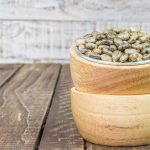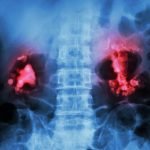WARNING – Sedation Drugs Dangerous to Developing Brains: Hypnosis May be an Alternative
In a recent press release, the FDA has warned that “lengthy use of general anesthetic and sedation drugs during surgeries or procedures in children younger than 3 years, or in pregnant women during their third trimester, may affect the development of children’s brains.” Recent human studies do suggest that single, relatively short exposure is unlikely to have negative effect.
Warning Labels will be Updated to State:
- exposure for prolonged periods or during multiple surgeries or procedures may negatively affect brain development in children younger than 3 years.
- exposure to general anesthetic and sedation drugs for more than 3 hours can cause nerve cell loss in the developing brain, with additional research in young animals suggesting that such nerve cell loss can cause long-term negative effects on behavior or learning.
Anesthesia and Sedation Agents
Anesthesia and sedation agents are important, and necessary in individuals undergoing surgery or painful/stressful procedures. When life-threatening conditions requiring surgery are needed, the possible side-effects of these agents pose serious ethical questions. There may be more options available to the open minded surgeon, however.
Hypnosis
Hypnosis, actually has a long history of being utilized for pain management during surgery and other procedures. In fact, both hypnosurgery and hypnosedation have been studied with positive outcomes. Using hypnosedation as an adjunctive method in surgical procedures has the potential to lower the amount of anesthesia needed, as well as increasing the duration of the anesthesia.1 Hypnosis has largely been effective in pain management during minor surgery procedures2, but also in more extensive surgical procedures.3 In fact, in one recently published case study, hypnosis was used as the primary pain relieving agent during a dental implantation of a molar. The hypnotic treatment was concluded to have decreased anxiety, bleeding, and pain.3
Sources:
- Faymonville ME, Meurisse M, Fissette J. Hypnosedation: a valuable alternative to traditional anaesthetic techniques. Acta Chir Belg. 1999;99(4):141-6.
- Kendrick C, Sliwinski J, Yu Y, et al. Hypnosis for Acute Procedural Pain: A Critical Review. Int J Clin Exp Hypn. 2016;64(1):75-115.
- Montenegro G, Alves L, Zaninotto AL, Falcão DP, De amorim RF. Hypnosis as a Valuable Tool for Surgical Procedures in the Oral and Maxillofacial Area. Am J Clin Hypn. 2017;59(4):414-421.
 Node Smith, associate editor for NDNR, is a fifth year naturopathic medical student at NUNM, where he has been instrumental in maintaining a firm connection to the philosophy and heritage of naturopathic medicine amongst the next generation of docs. He helped found the first multi-generational experiential retreat, which brings elders, alumni, and students together for a weekend campout where naturopathic medicine and medical philosophy are experienced in nature. Three years ago he helped found the non-profit, Association for Naturopathic ReVitalization (ANR), for which he serves as the board chairman. ANR has a mission to inspire health practitioners to embody the naturopathic principles through experiential education. Node also has a firm belief that the next era of naturopathic medicine will see a resurgence of in-patient facilities which use fasting, earthing, hydrotherapy and homeopathy to bring people back from chronic diseases of modern living; he is involved in numerous conversations and projects to bring about this vision.
Node Smith, associate editor for NDNR, is a fifth year naturopathic medical student at NUNM, where he has been instrumental in maintaining a firm connection to the philosophy and heritage of naturopathic medicine amongst the next generation of docs. He helped found the first multi-generational experiential retreat, which brings elders, alumni, and students together for a weekend campout where naturopathic medicine and medical philosophy are experienced in nature. Three years ago he helped found the non-profit, Association for Naturopathic ReVitalization (ANR), for which he serves as the board chairman. ANR has a mission to inspire health practitioners to embody the naturopathic principles through experiential education. Node also has a firm belief that the next era of naturopathic medicine will see a resurgence of in-patient facilities which use fasting, earthing, hydrotherapy and homeopathy to bring people back from chronic diseases of modern living; he is involved in numerous conversations and projects to bring about this vision.









